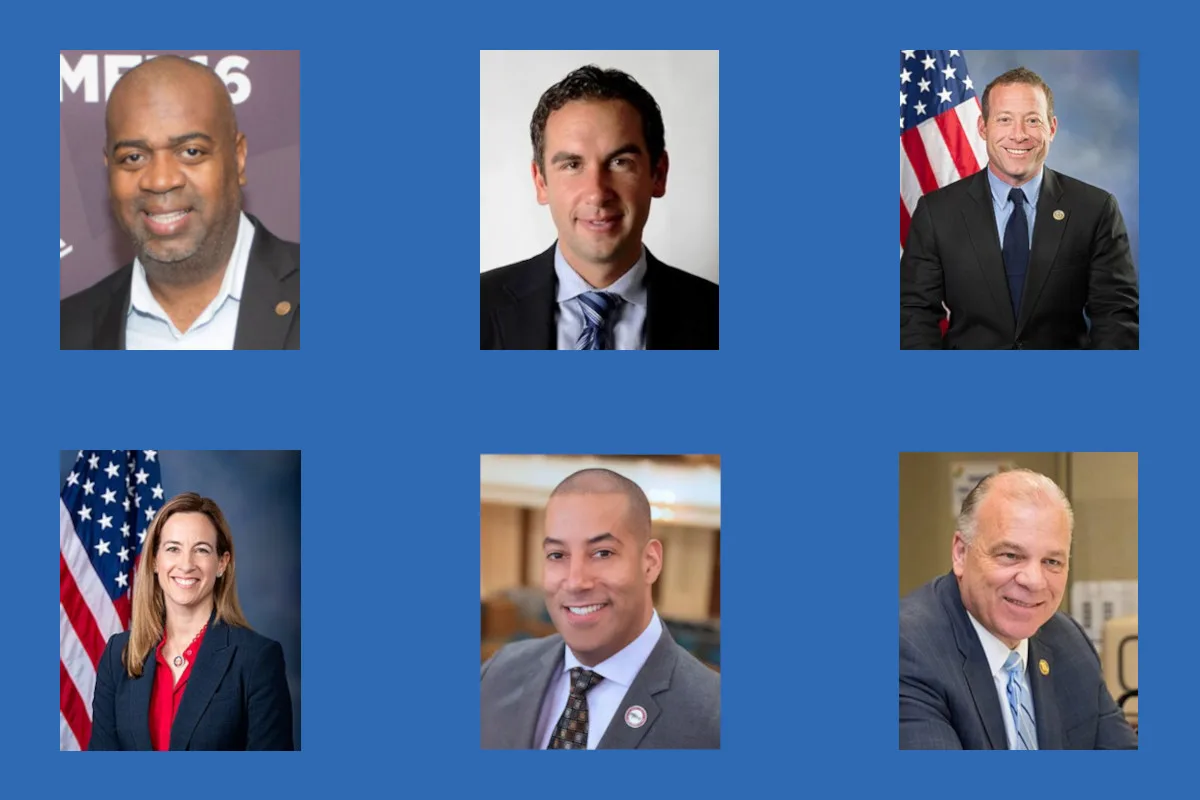
More in Politics
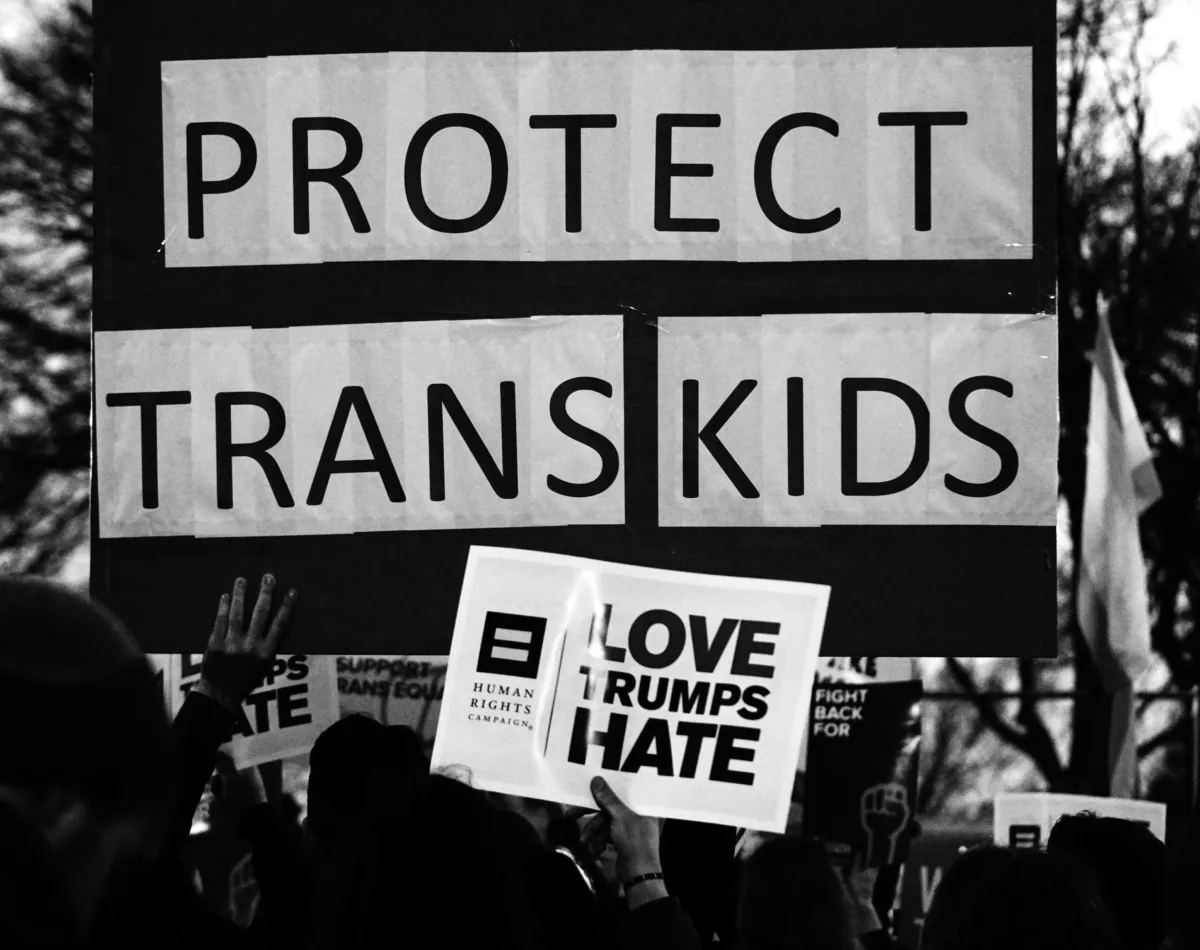
Trump’s War on Trans People: A Legal Survival Guide
State and federal governments have moved to criminalize trans people, parents of trans children, and healthcare providers.
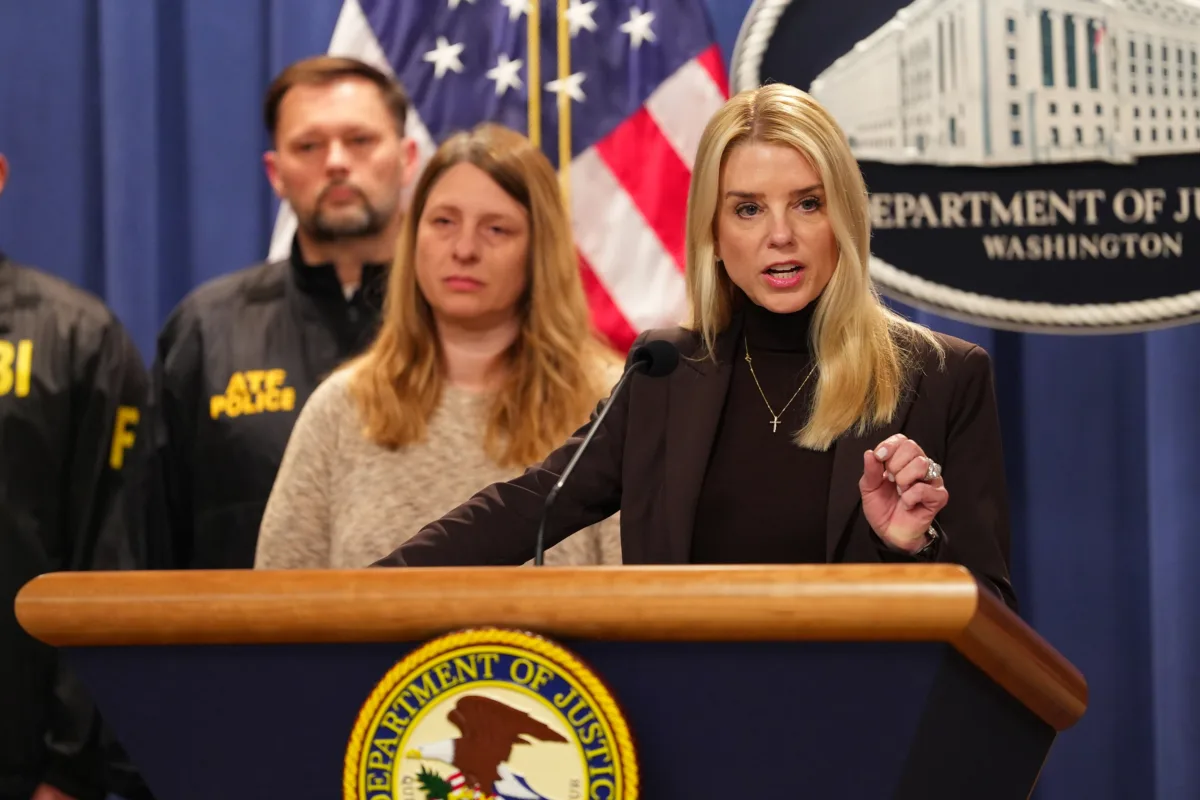
Trump DOJ Erases Trans People from Crime Data Surveys
The Justice Department has removed questions about gender identity from the National Crime Victimization Survey, the Survey on Sexual Victimization, and the Survey of Inmates in Local Jails.
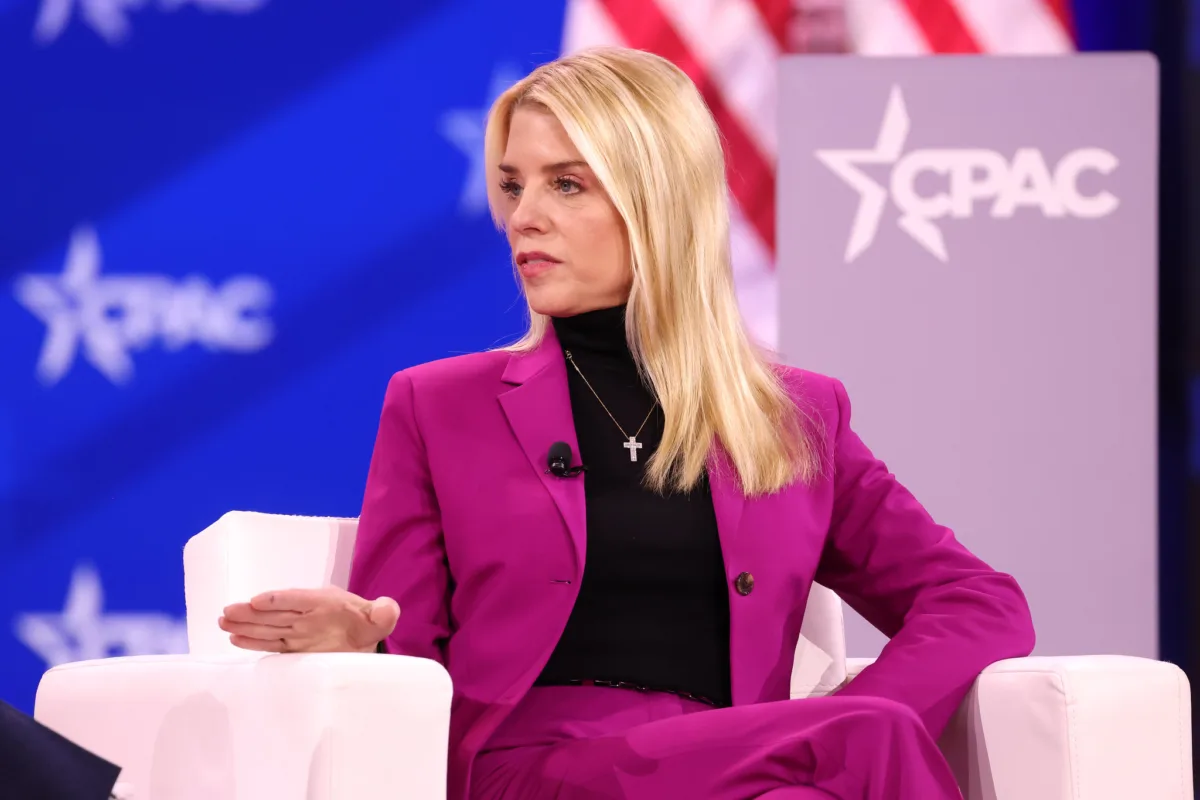
Trump DOJ Defunds National Prison Rape Resource Center
A letter obtained exclusively by The Appeal says Trump’s Department of Justice has cut all funding to the Prison Rape Elimination Act Resource Center.
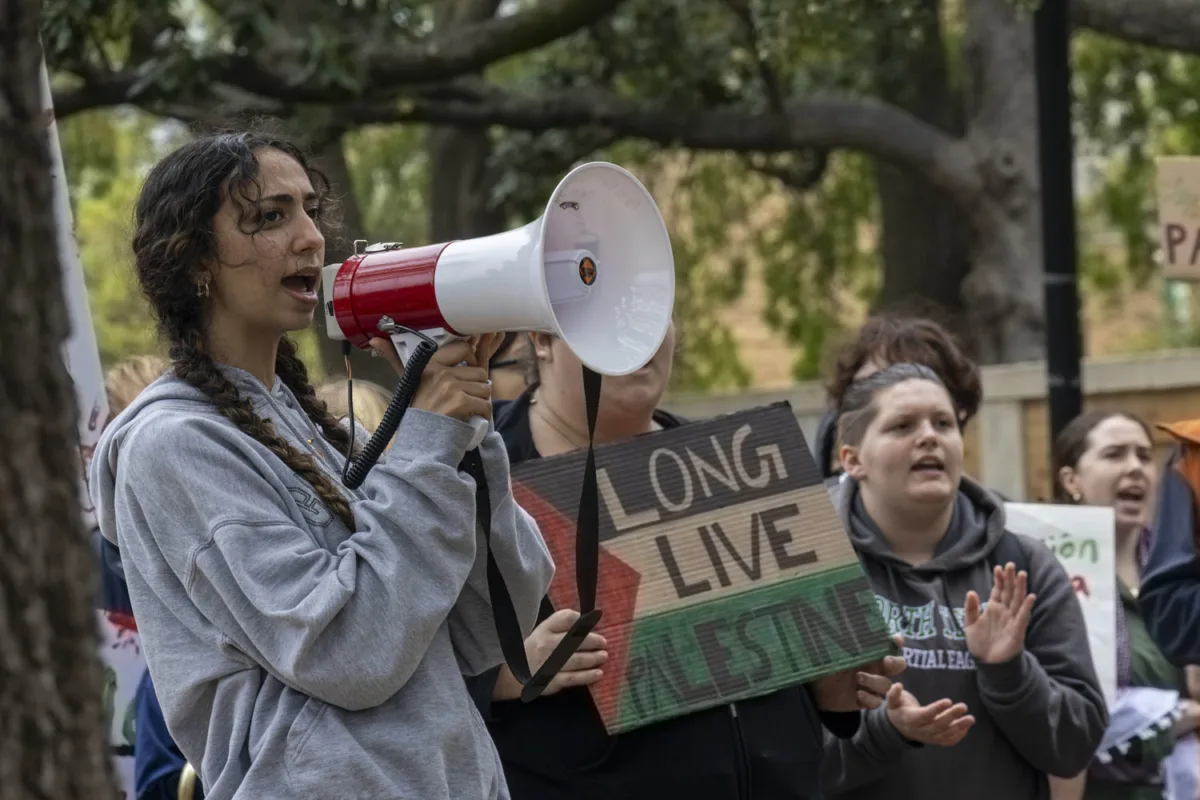
Here’s Where Pro-Palestine Protesters Face the Harshest Charges
In five jurisdictions reviewed by The Appeal, prosecutors have filed or are considering filing 187 charges against 66 protesters—including alleged hate crimes on cops, mob action, and attempted ethnic intimidation.
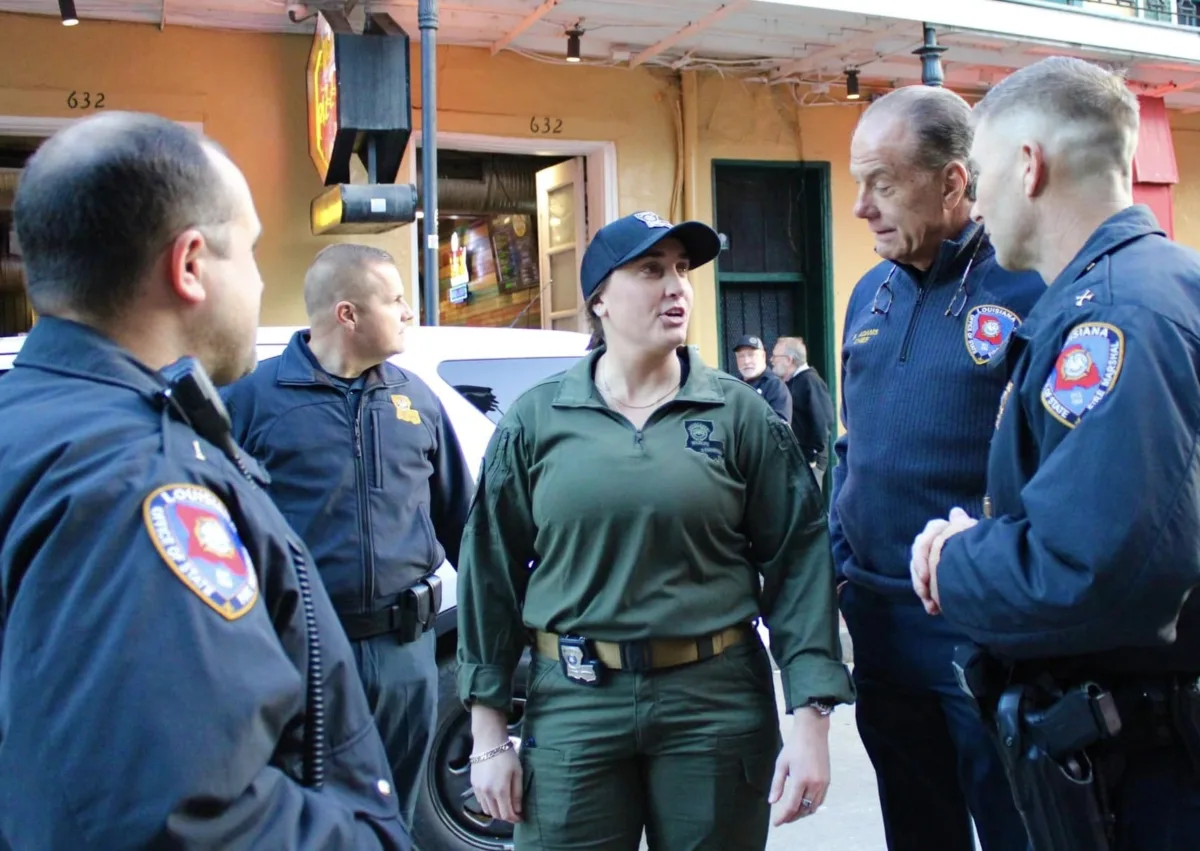
ICE’s New Deputy Director Helped Oversee Louisiana’s Homeless Sweeps
Madison Sheahan’s Wildlife and Fisheries officers sent unhoused people to a New Orleans warehouse. What does that mean for the future?

Trans Prisoners Sue to Block Trump Order Banning Gender-Affirming Care
At least one trans woman in federal prison says Trump’s executive order has already prevented her from receiving hormone therapy, leading to “thoughts of suicide and self-harm.”
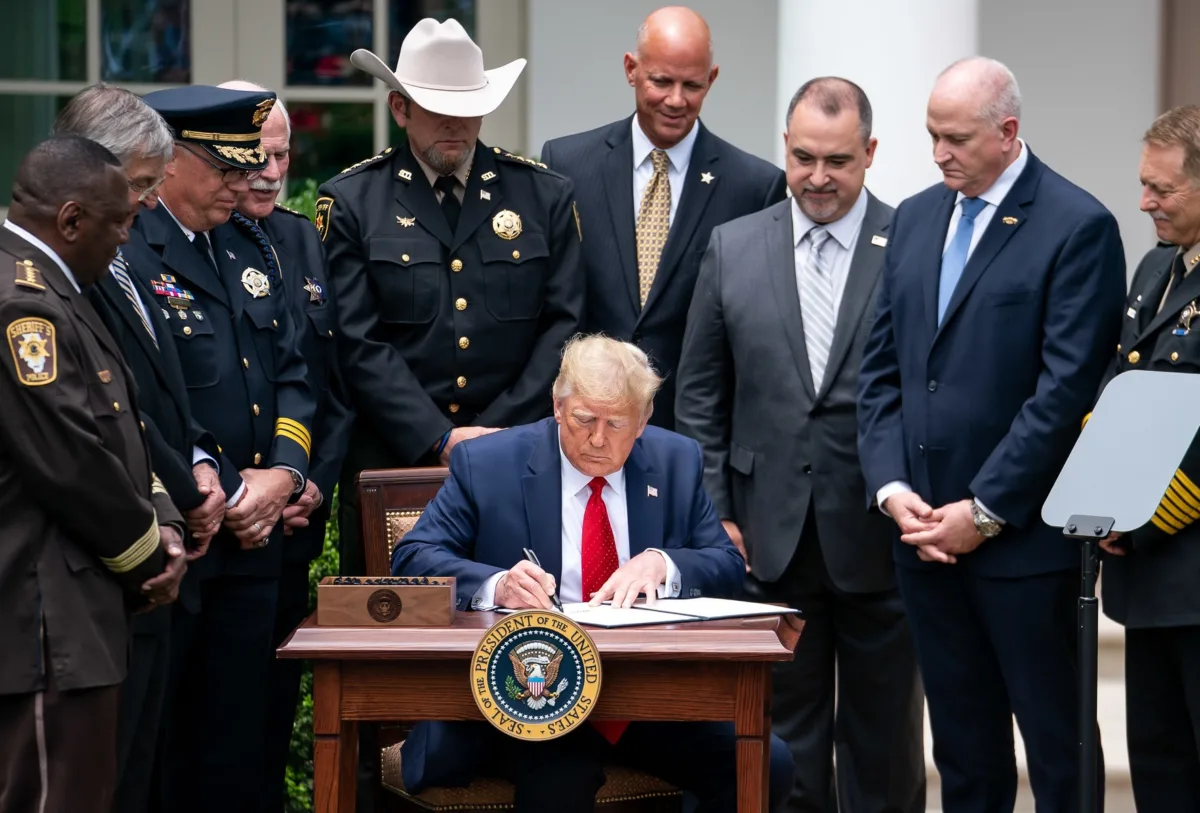
Trump’s Deleted Police Misconduct Database Was Full of Prison and Border Incidents
Data obtained by The Appeal shows that more than 75 percent of the misconduct incidents in NLEAD, the federal police misconduct database Trump deleted this month, were generated by prison and border guards.
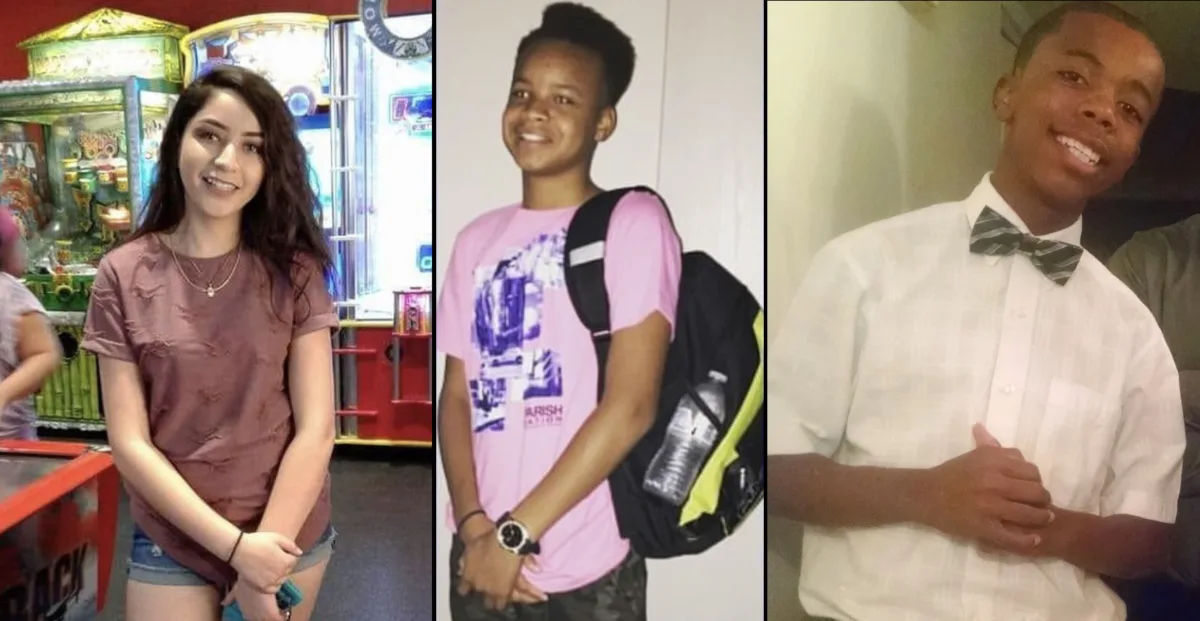
AZ Lawmakers Again Try to Limit Controversial ‘Felony Murder’ Law
The law allows prosecutors to charge people with murder even if they haven’t killed anyone. Multiple people have been imprisoned for killings committed by police.

‘People Will Die’ from Trump’s Trans Prisoner Crackdown, Experts Warn
One of Trump’s first executive orders says federal prisons must house trans women in men’s facilities and directs the government to remove anti-rape protections for trans prisoners.
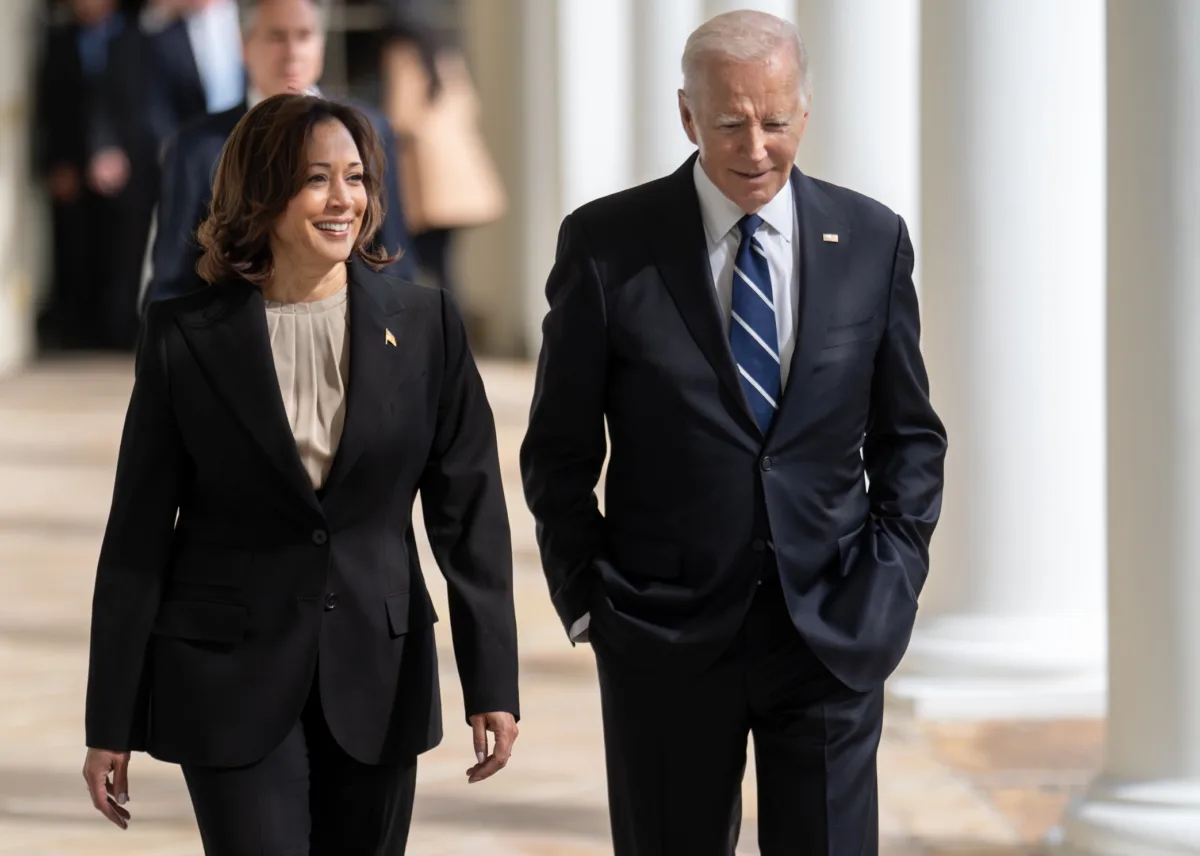
People in My Prison Want More from the Democrats. Here’s Why.
I spoke to the people incarcerated with me about the 2024 election. They want more than a Democratic Party that abandons incarcerated people, offers little, and focuses on demonizing its opponents.
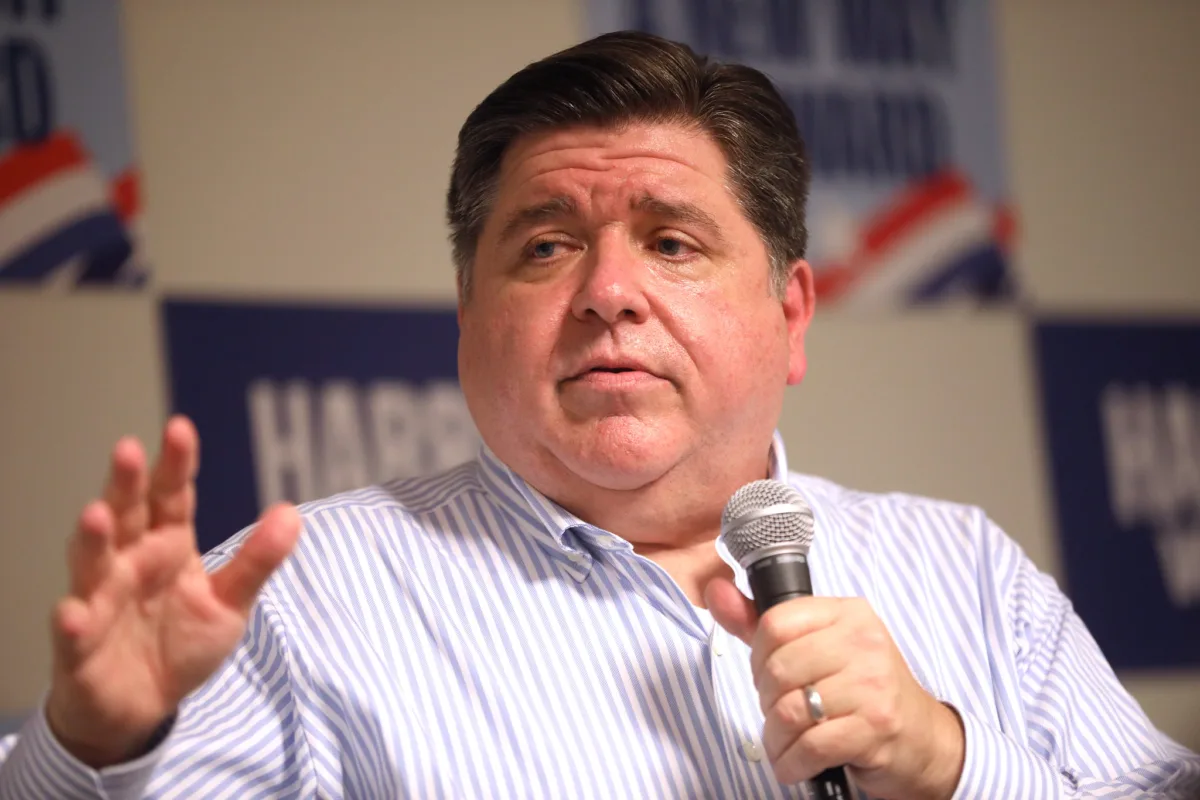
How Political Games Hamstrung Illinois’ Parole Board—Trapping Thousands in Prison
Illinois Governor JB Pritzker tried to use the state’s parole board to safely free more people from prison. But after Republican backlash, the board’s work has essentially been frozen.
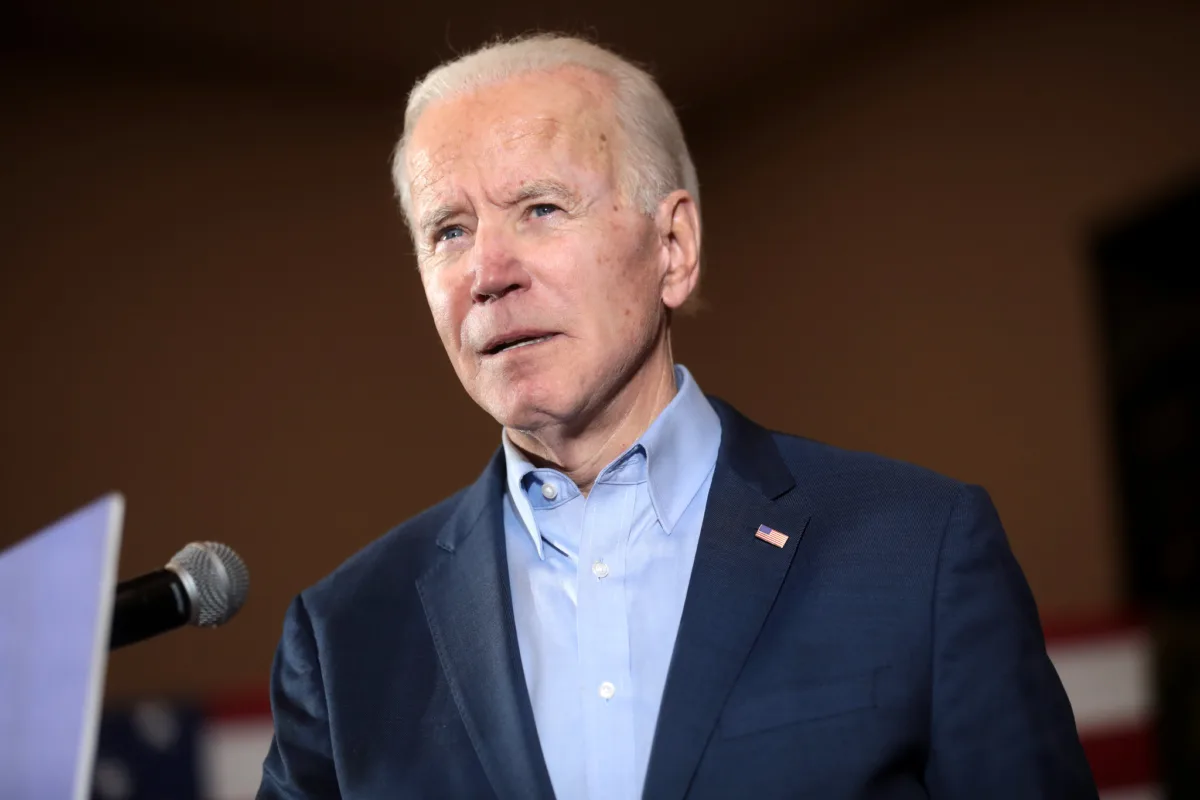
Biden Has 40 Days to Save the 40 Federal Death Row Prisoners
Multiple groups have now urged President Biden to spare the people on federal death row before Trump returns to power.
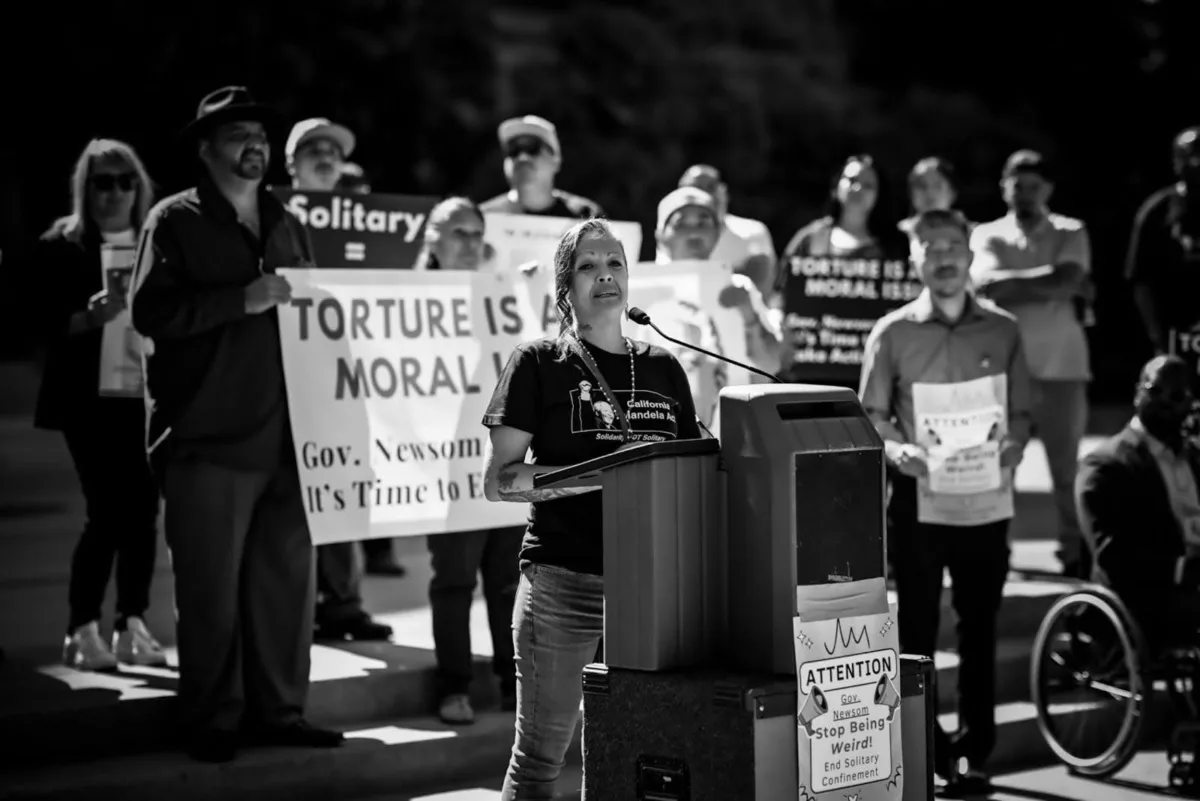
Advocates Blast Gavin Newsom for Fighting Solitary Confinement Reform
Formerly incarcerated Californians say that if Gavin Newsom wants to keep touting his record as a “progressive,” he should stop vetoing bills that ban or restrict solitary confinement.

U.S. Reps Urge Biden to Use Clemency to Correct “Extreme Use of Incarceration”
A group of congress members says Joe Biden should pardon people or commute sentences before his term ends.
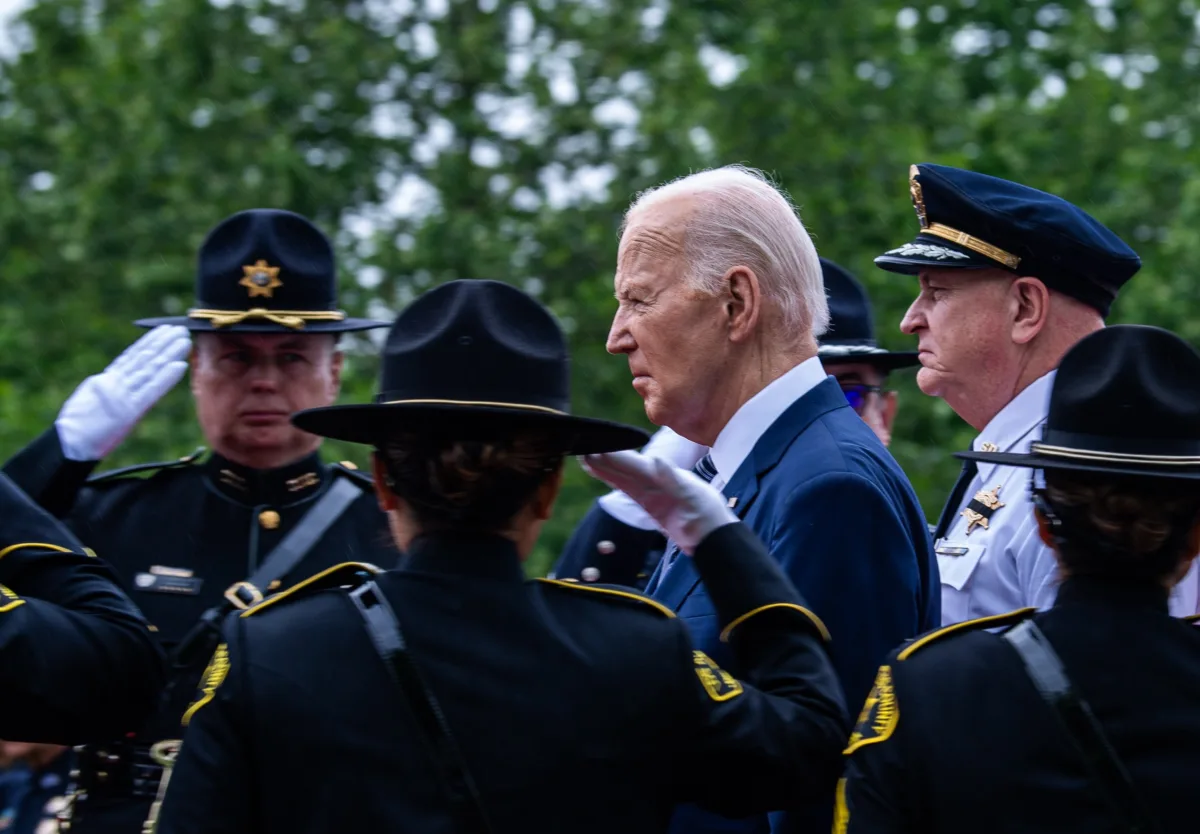
‘Fund the Police’ Backfired—and Gave Trump More Power Than Ever
Democrats spent the last four years running away from police reform. “Funding the police” didn’t just help them lose the presidency—it handed a dangerous man an even stronger police and surveillance state.
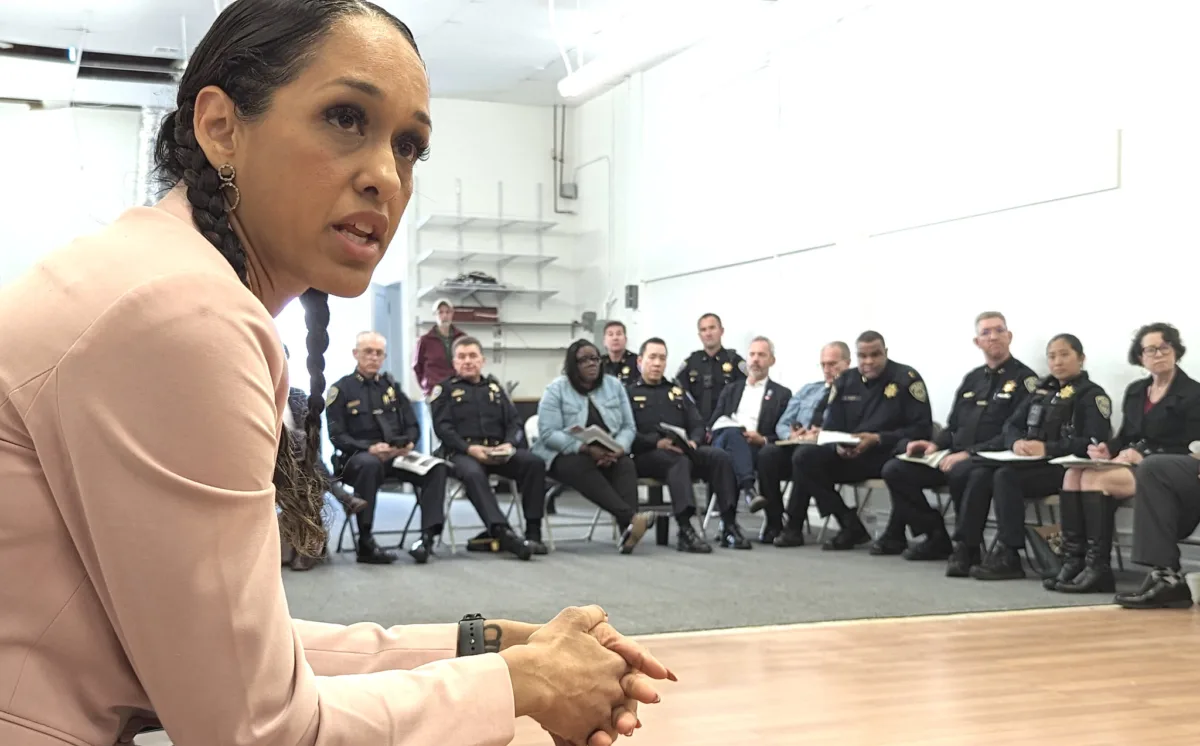
Women Languish at San Francisco’s Jail for Years Without Answers—or Sunlight
After a moral panic about crime, San Francisco’s billionaires and political leaders demanded more arrests. Pretrial detainees are now seeing the harmful effects.

Prosecutors Have Levied Serious Charges Against Pro-Palestine College Protesters
The Appeal reviewed 935 arrests that occurred on 22 campuses last Spring. Prosecutors—all of whom are running for reelection—charged students with felonies, including assaults on police officers, wearing disguises, mob action, and attempted ethnic intimidation.
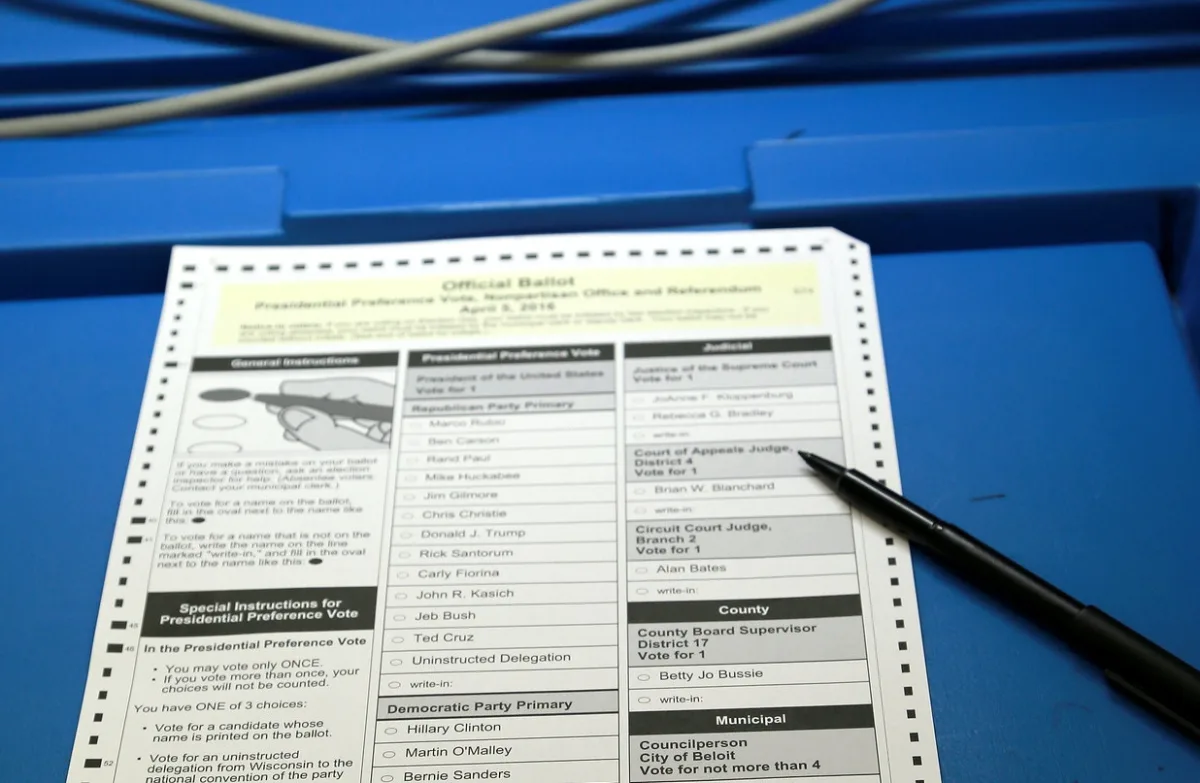
Our Voting Rights Have Been Restored. Here’s How We Can Use Our Power
Changes in state law mean that many more people with felony convictions will be voting in 2024 than in previous elections.

What Incarcerated People Want Candidates to Know
Most people in prison can’t vote. That doesn’t mean they aren’t paying attention.
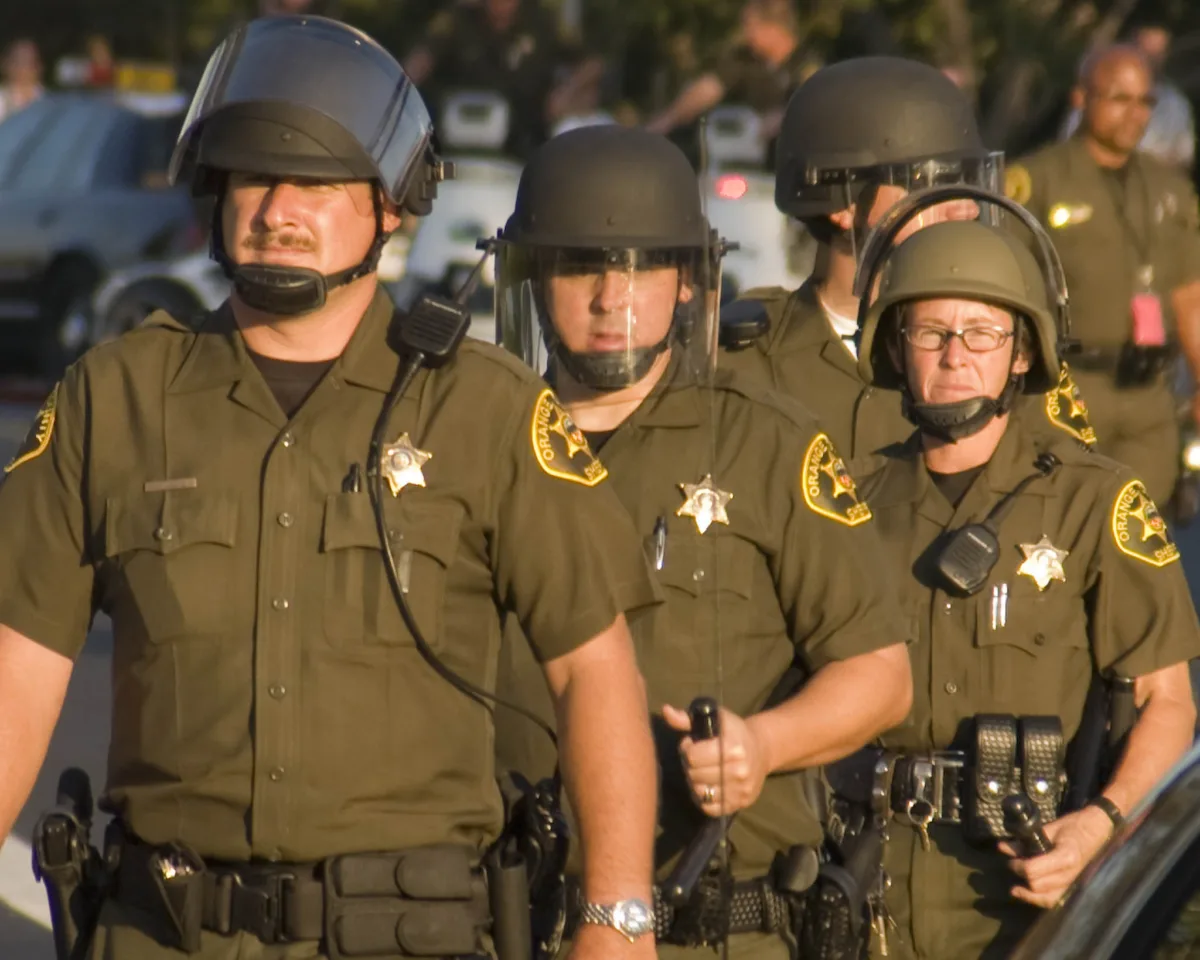
Despite ‘Good Guy’ Image, Sheriffs Endanger Elections and People
Author Jessica Pishko’s new book argues that American sheriffs’ initial jobs were to help commit genocide against Native Americans and help settlers steal land. She warns their danger persists to this day.
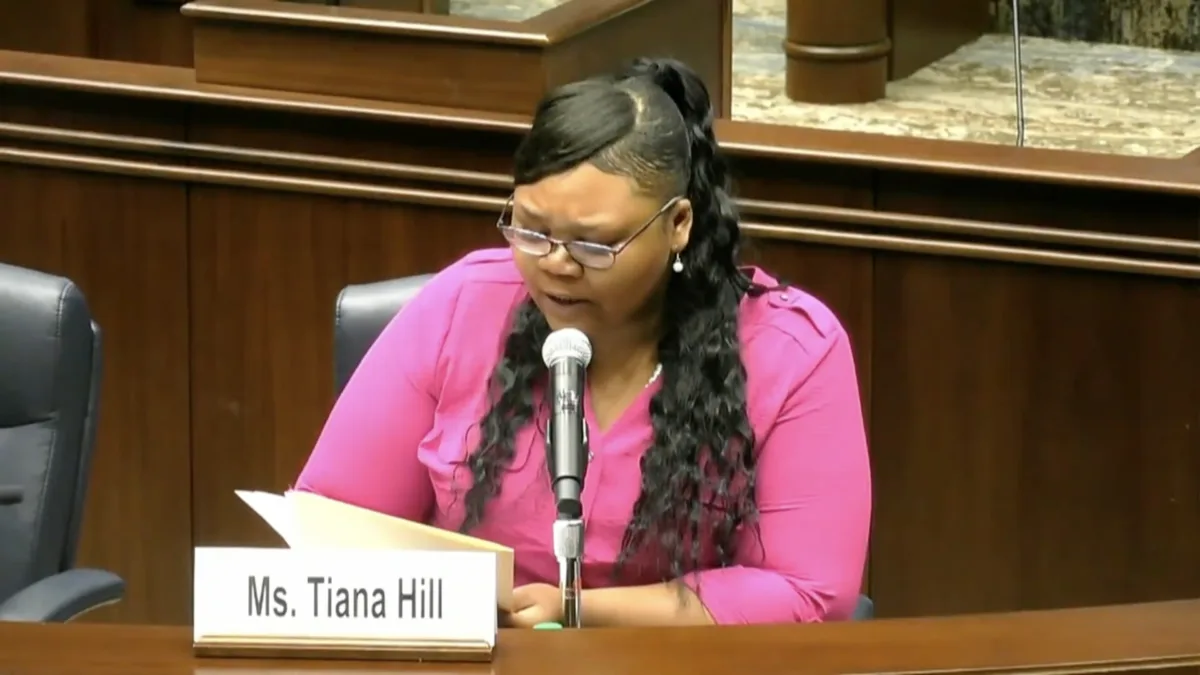
She Says a Georgia Jail Forced Her to Deliver a Premature Baby Without Care. The Child Died.
On Wednesday, Tiana Hill testified before the U.S. Senate Human Rights Subcommittee that staff at the notorious Clayton County Jail insisted she wasn’t pregnant—until she gave birth on a metal bed.
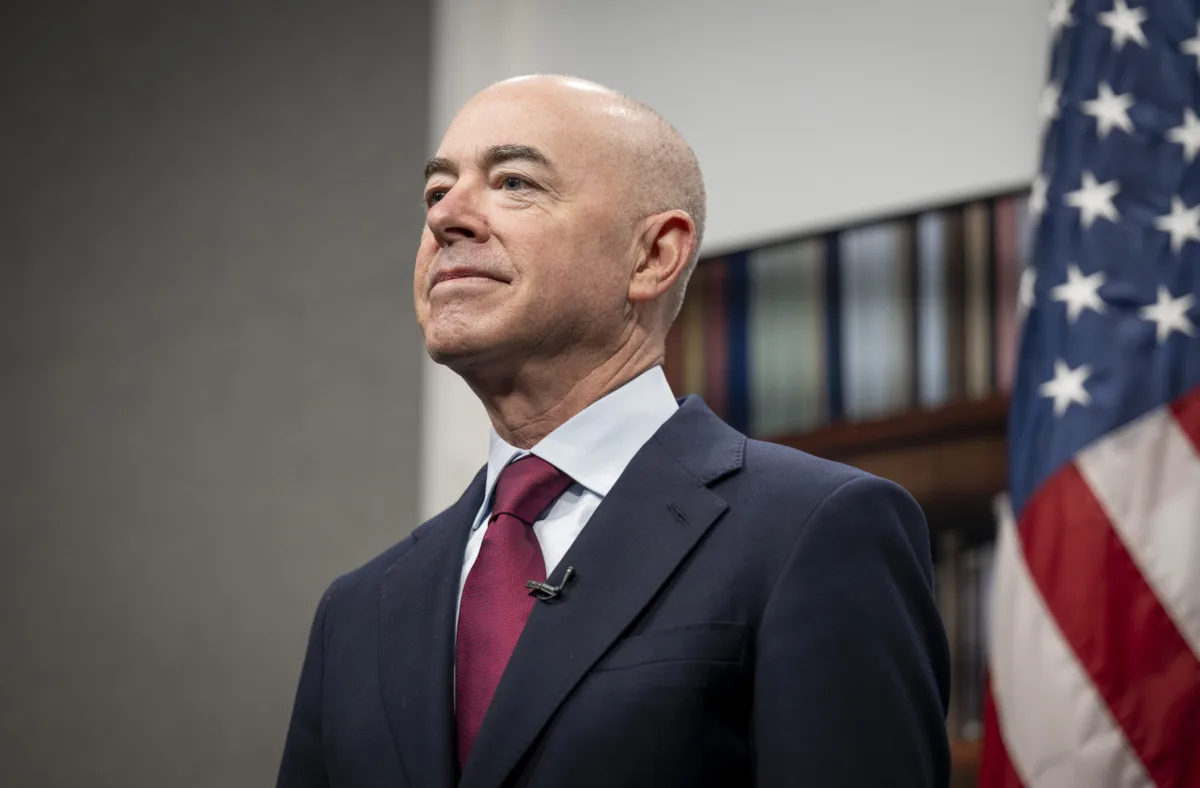
Investigators Wanted to Close an Abusive ICE Facility. Biden’s Administration Extended Its Contract.
The Appeal found a systemic culture of abuse and mismanagement at the Winn Correctional Center, an ICE jail in Louisiana. Biden’s administration has kept people detained there against the wishes of government investigators and multiple U.S. senators.
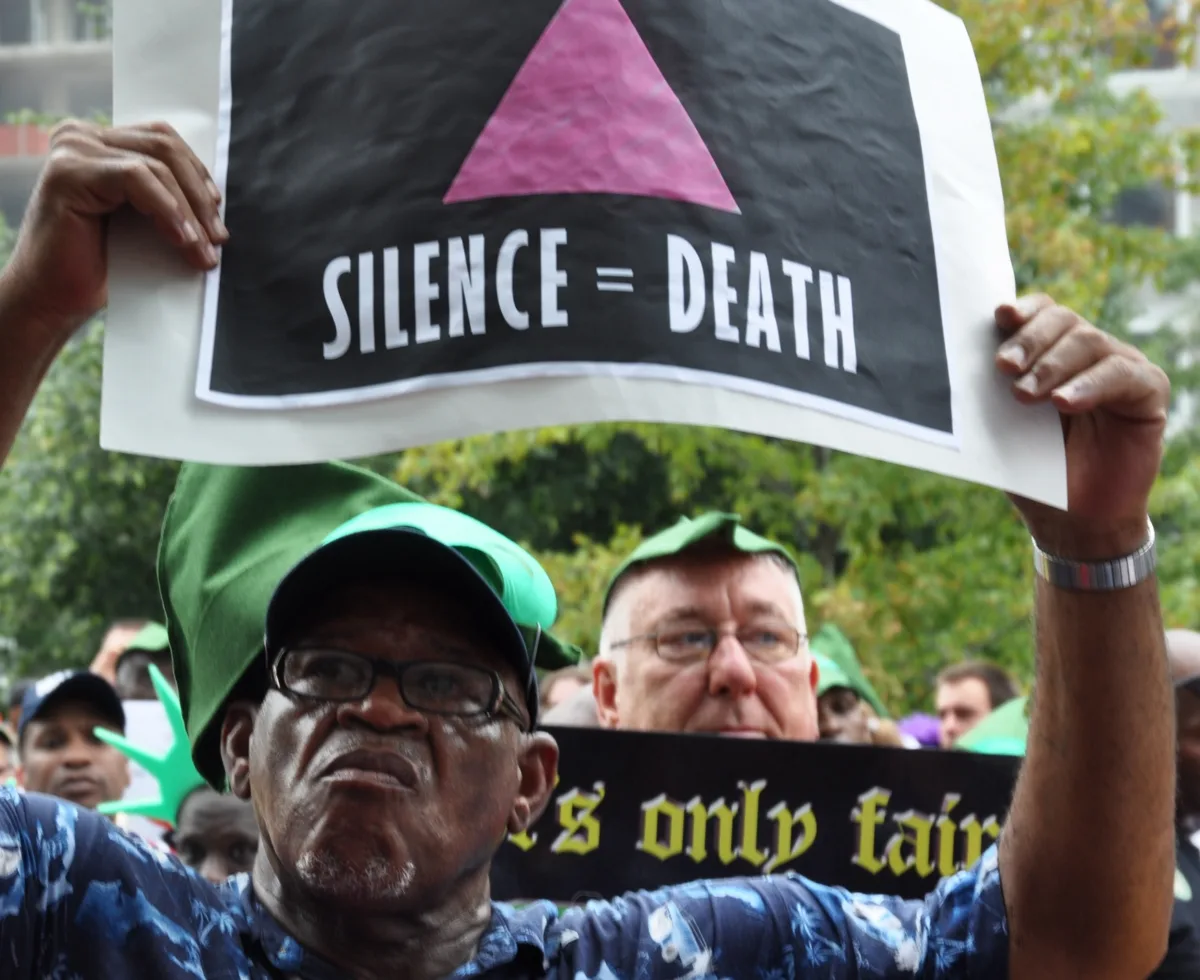
The DOJ Blocked a Tennessee HIV Criminalization Law. State Lawmakers Keep Pushing Back.
In May, the federal government and Shelby County, Tennessee, reached a landmark settlement stopping the local prosecutor from enforcing a law that discriminates against people living with HIV.
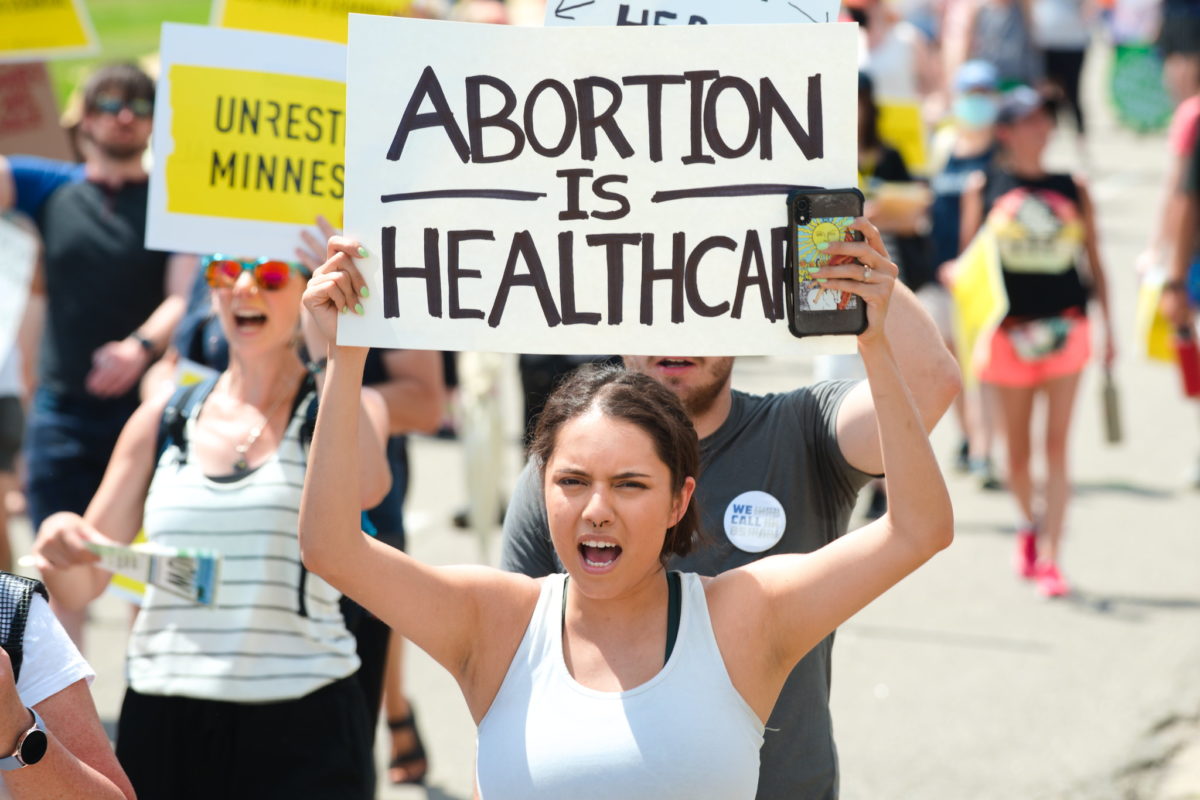
Abortion ‘Trafficking’ Laws, Travel Bans, Medication Crackdowns: How the GOP is Criminalizing Abortion Post-Dobbs
Multiple states have created a new crime called “abortion trafficking,” which makes it illegal for adults to transport minors to get abortions without parental consent. Others are trying to restrict abortion medications or out-of-state travel.
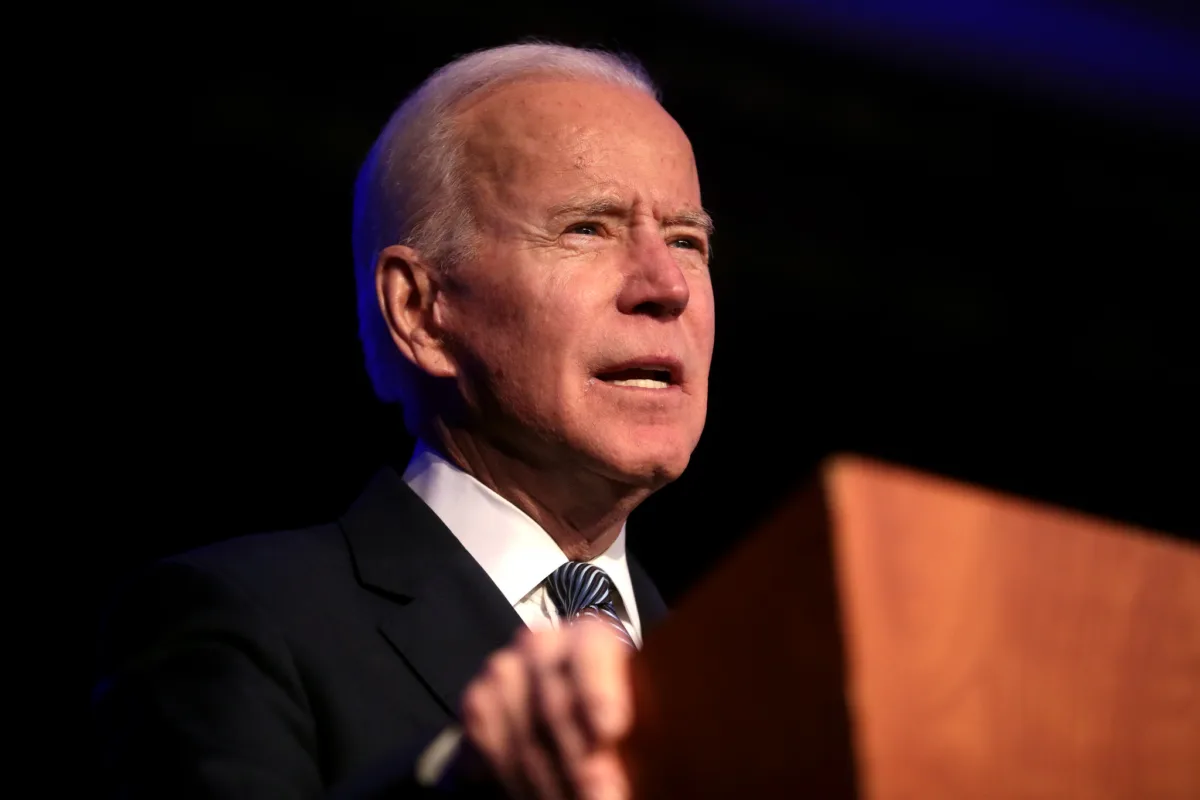
Biden’s Cannabis Pardons Made Progress. A Federal Expungement Statute Would Go Further.
President Biden has pardoned thousands of people for cannabis-related offenses. But to truly give people “second chances,” he should push Congress to erase peoples’ marijuana-related criminal records entirely.

How Incarcerated People Are Building Political Power in Washington State
Incarcerated people have testified before state lawmakers about legislation that would directly impact their lives, including bills to change the cost of prison communications and rein in extreme sentencing practices and the use of solitary confinement.
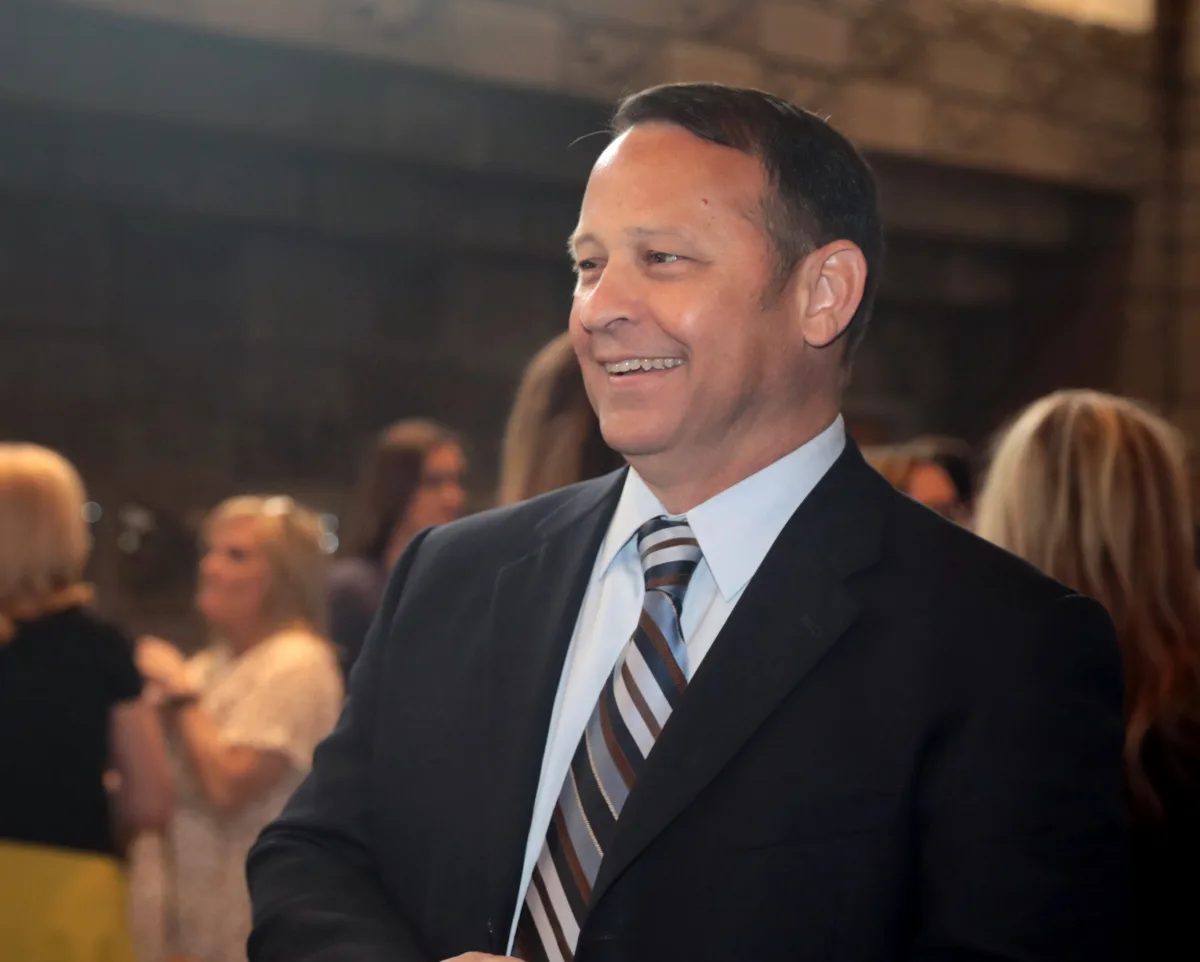
Arizona Supreme Court Upholds Total Abortion Ban With Mandatory Prison Time
The Arizona Supreme Court ruled that the state can enforce a near-total abortion ban from 1864. The ban allows no abortions except to save the life of a pregnant person and carries a mandatory two- to five-year prison sentence for people who provide abortions.
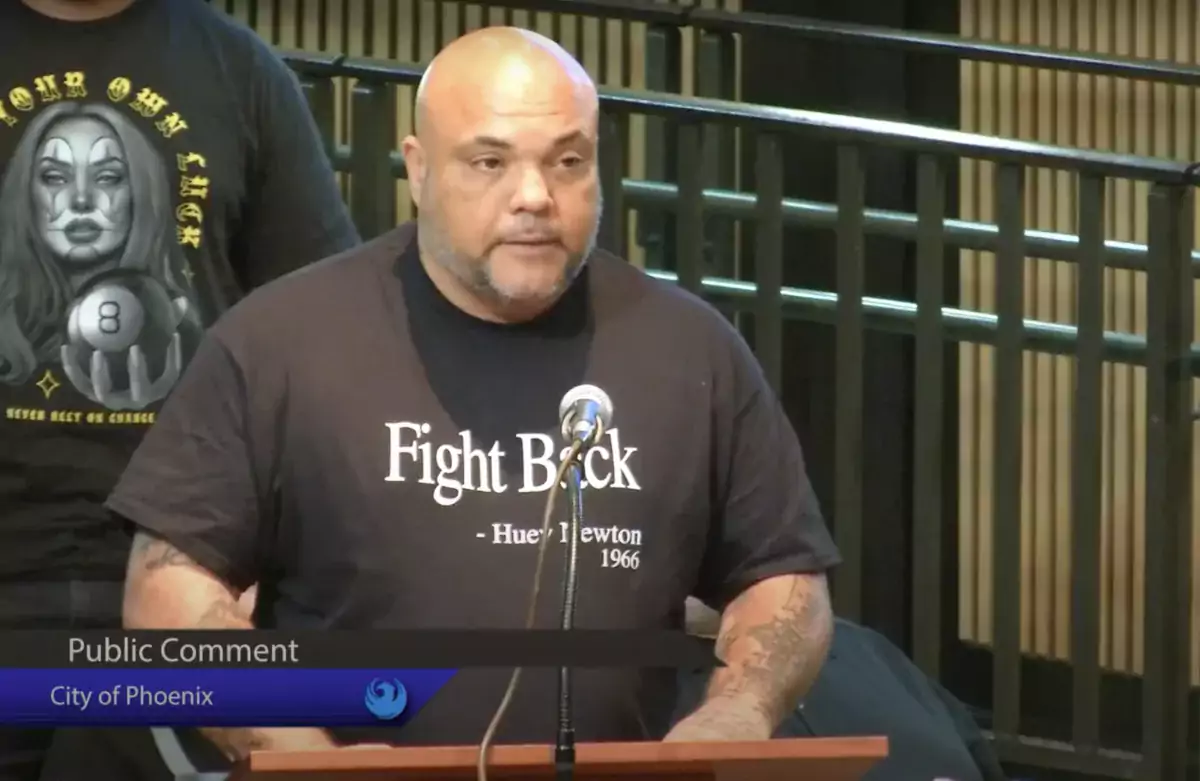
Phoenix Police Victims Want City to Stop Interfering With Federal Probe
The U.S. Department of Justice is investigating the Phoenix Police Department for potential civil rights violations. During last week’s city council meeting, residents said city officials must stop fighting the inquiry.
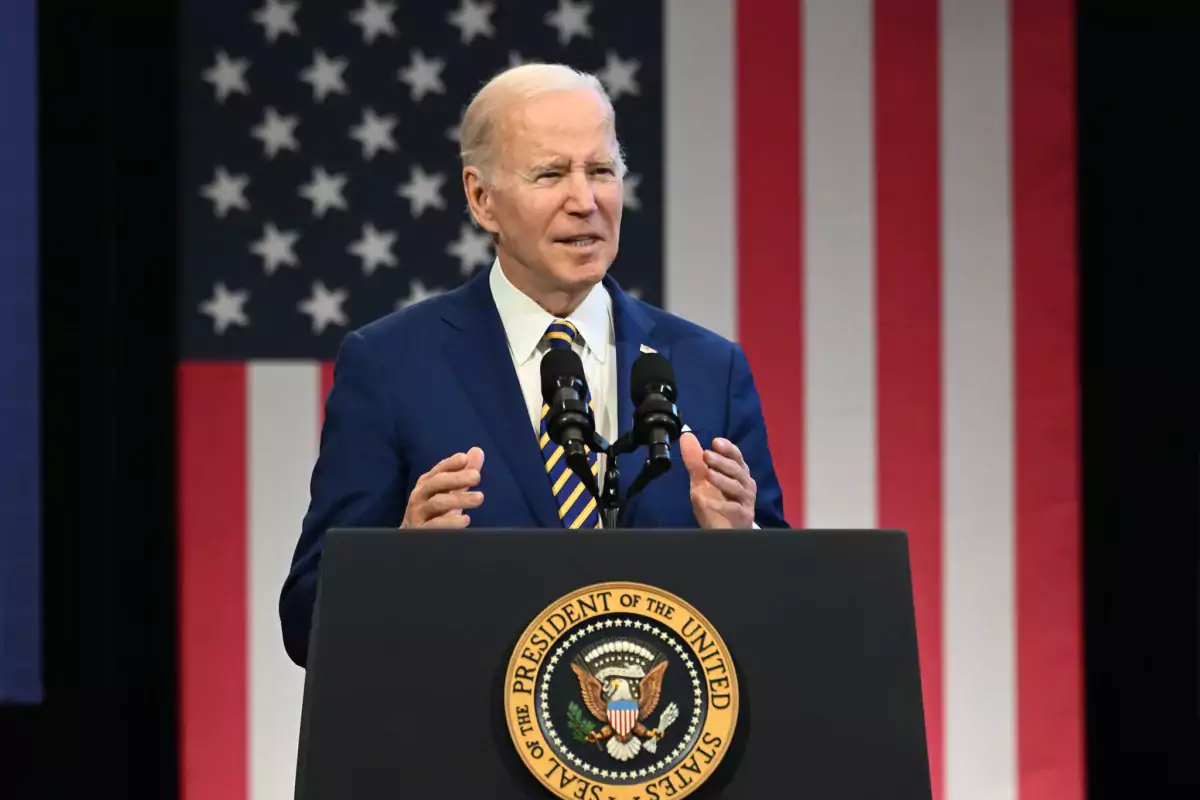
Joe Biden Promised Bold Justice Reforms. So Where Are They?
My husband Nick died from COVID-19 in March 2020 while imprisoned pretrial. Joe Biden has said he’d help others like him before it’s too late. But so far, the president has yet to make good on his promises.
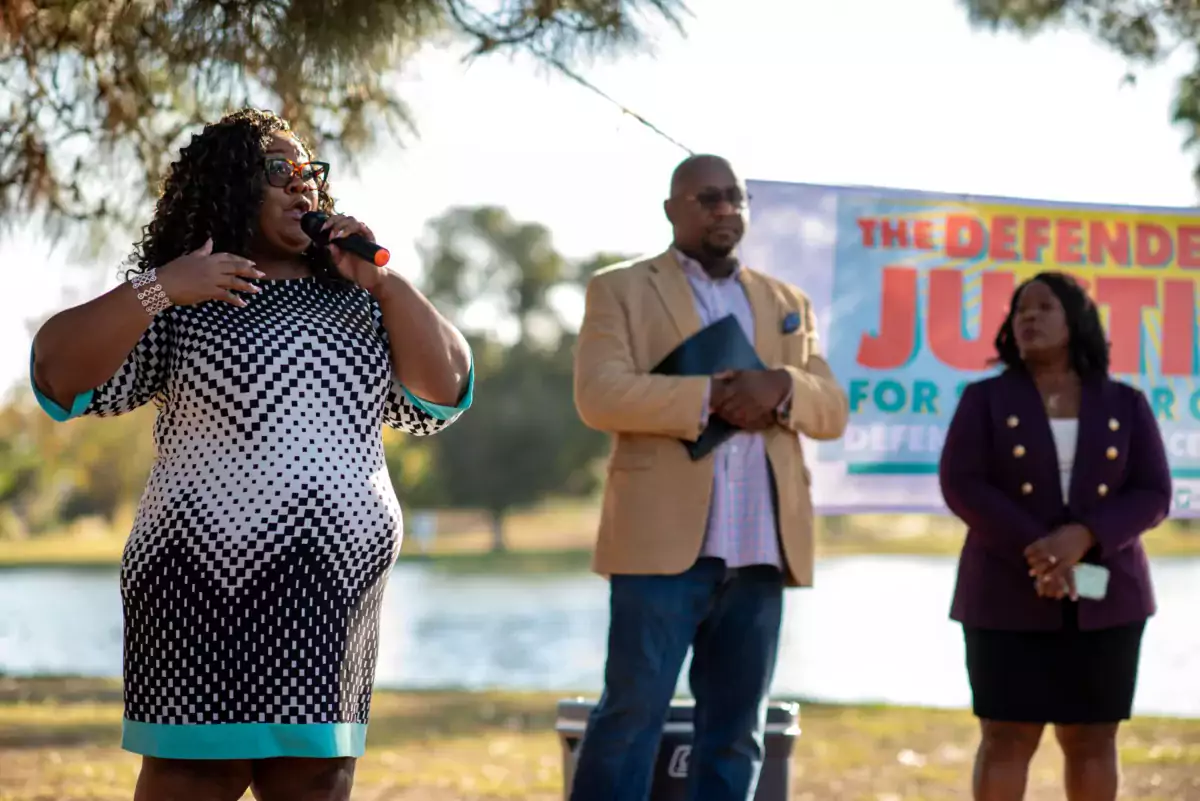
Public Defenders Running for Judge Want to Reduce Mass Incarceration in Los Angeles
Five public defenders are running for seats on the Los Angeles Superior Court. Tomorrow, voters will decide whether to elect candidates who support alternatives to incarceration—or maintain the status quo.
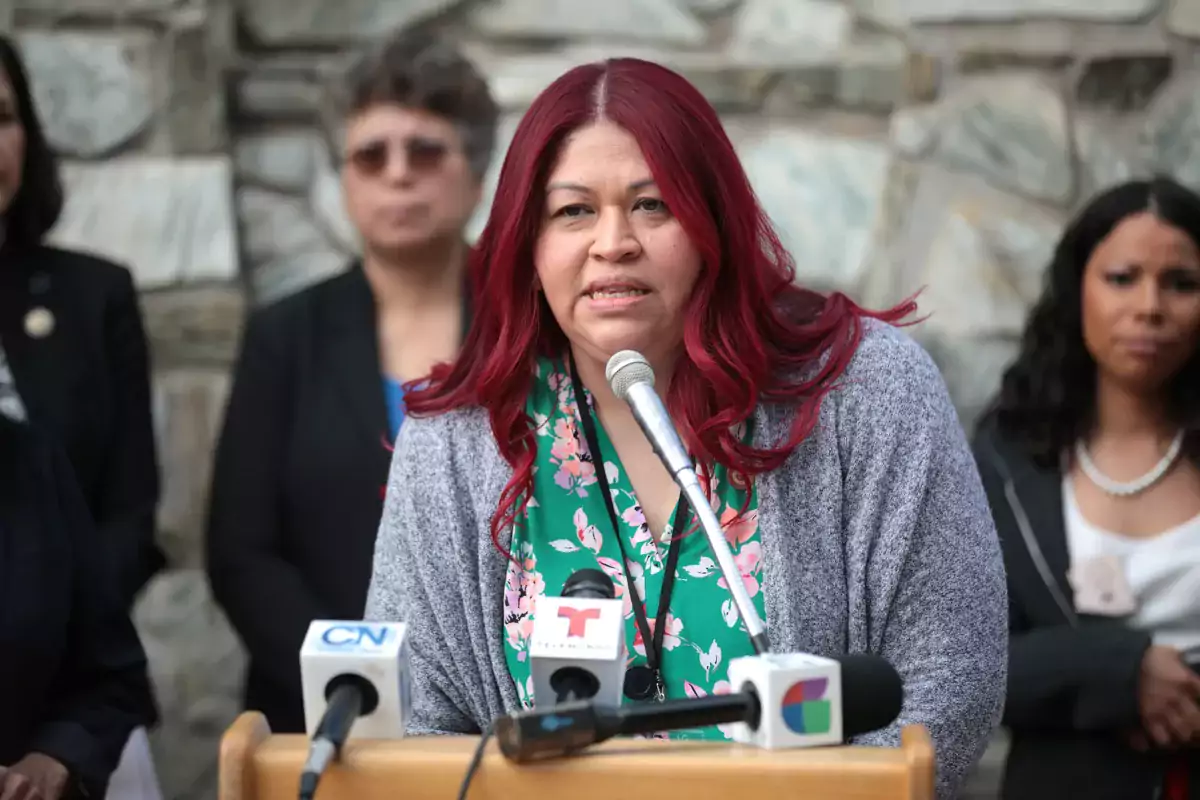
Arizona Bills Would Ban Felony Murder Law—Used to Charge Bystanders for Shootings by Police
State Sen. Anna Hernandez filed the bill following The Appeal’s investigation into the Phoenix Police Department’s shooting of Jacob Harris. Though police killed Harris, his friends were charged using the state’s felony murder statute. Tomorrow, a coalition will join Hernandez in a press conference to support the bill.

How Florida’s Sluggish Voter Registration Process Sent Ex-Prisoners Back to Jail
In multiple cases, documents obtained by The Appeal show the state told ineligible voters they could cast ballots.
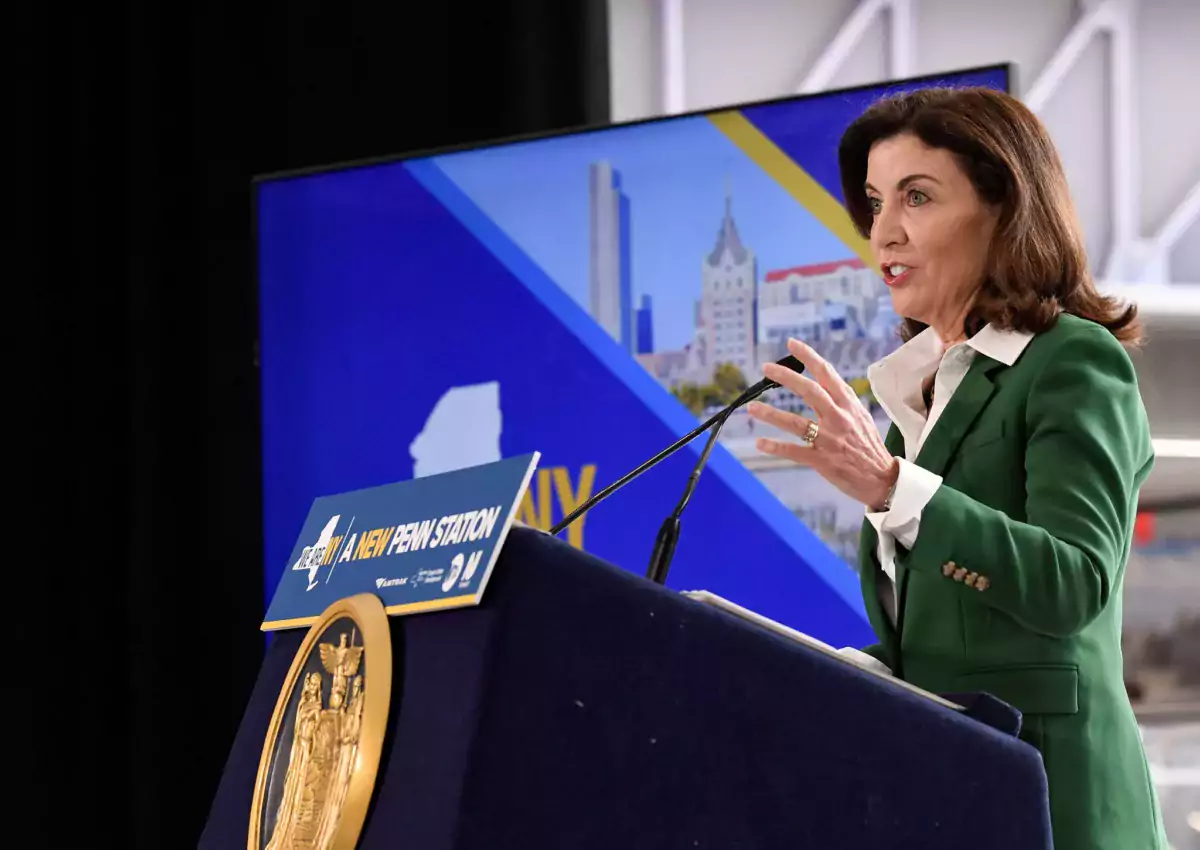
New York Can Stand up for the Wrongfully Convicted—and Against Clarence Thomas
By signing the Challenging Wrongful Convictions Act into law, Governor Kathy Hochul can set a model of good policy for other progressive states seeking to serve as a bulwark against the conservative Supreme Court.

Gavin Newsom Can Sign a Bill to End Price-Gouging in California Prisons
California prison canteens currently sell essential items—such as snacks and medication—at a markup of between 65 and 200 percent.
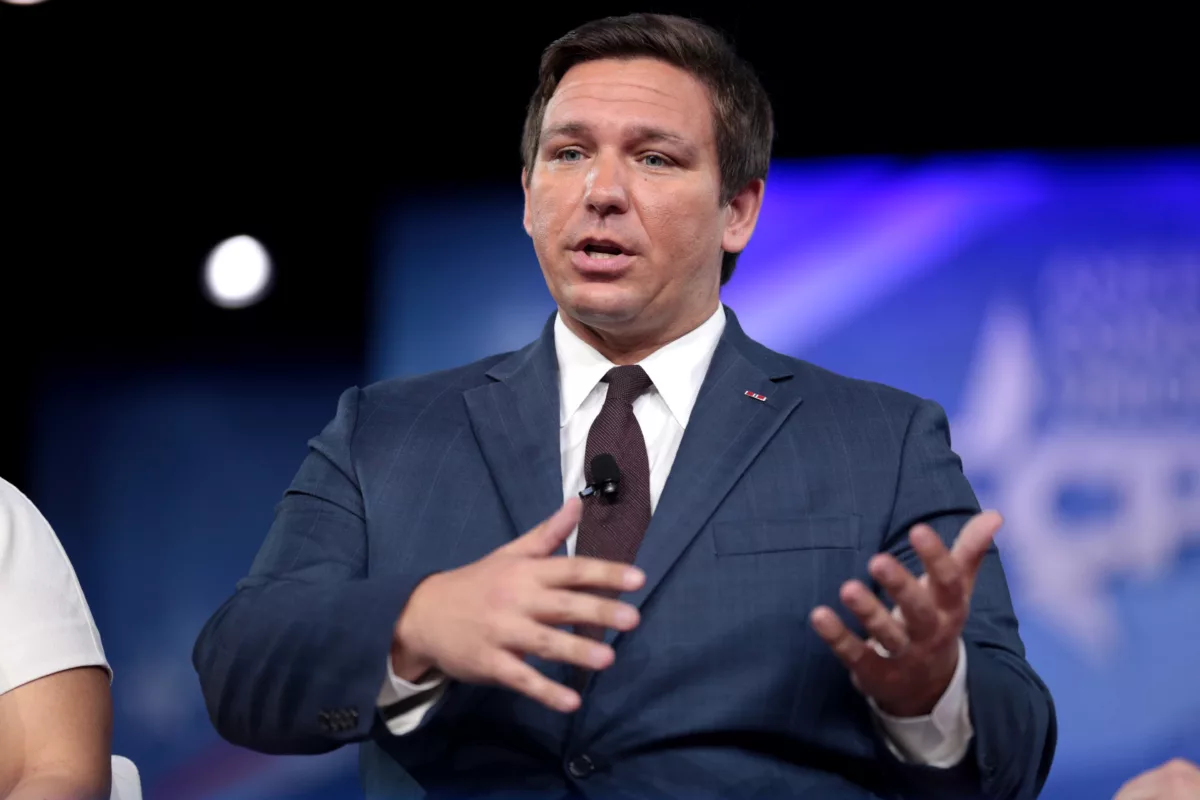
Behind the Right’s War on Prosecutors
Reform-minded prosecutors across the country have faced efforts to remove them from office or limit their powers.
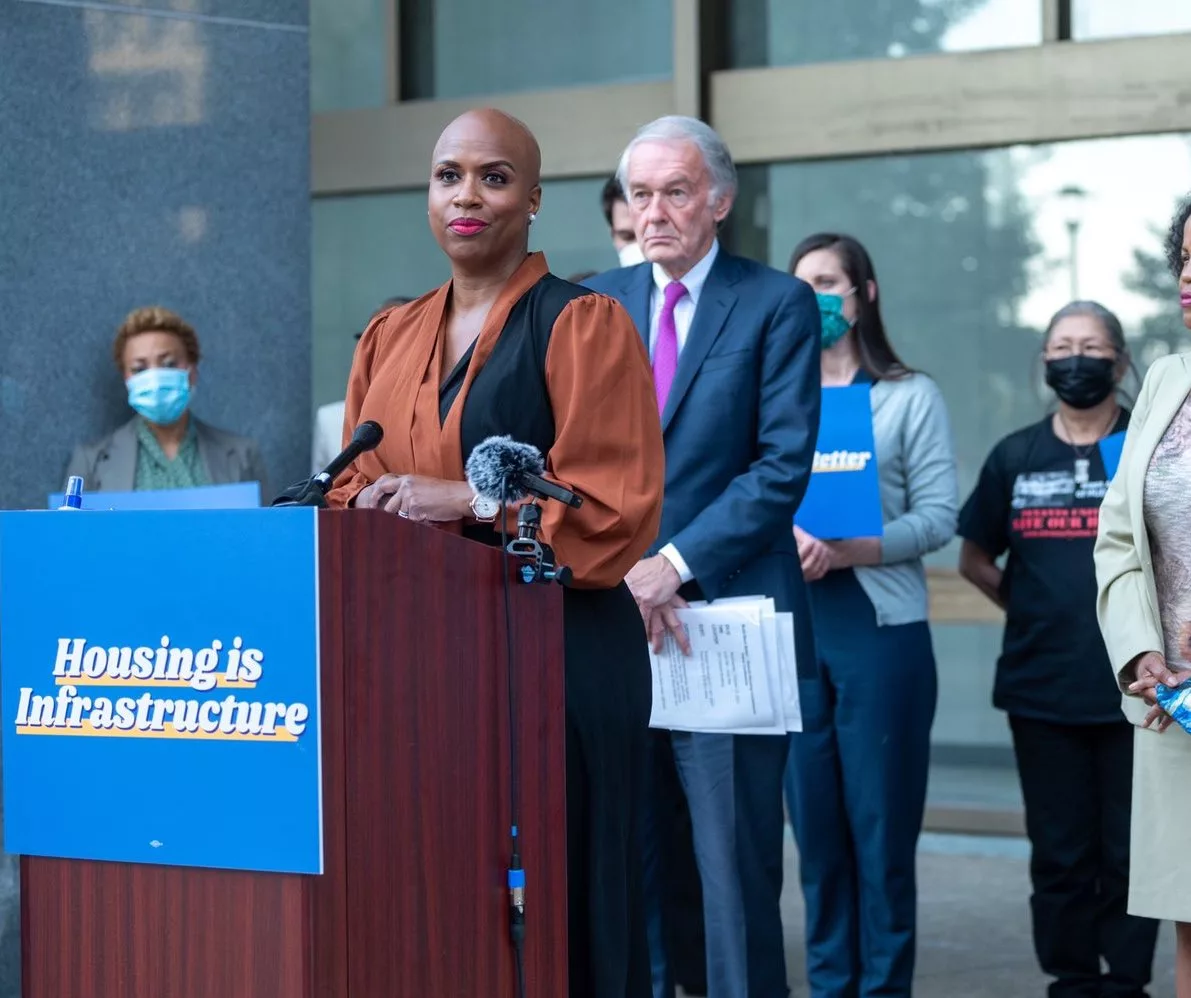
Pressley, Tlaib Announce Bill to Limit Criminal Background Checks on Renters
Formerly incarcerated people are 10 times more likely to become homeless than people without criminal backgrounds. The Housing FIRST Act would ban credit-check companies from including criminal history information on prospective tenants’ files if enacted.
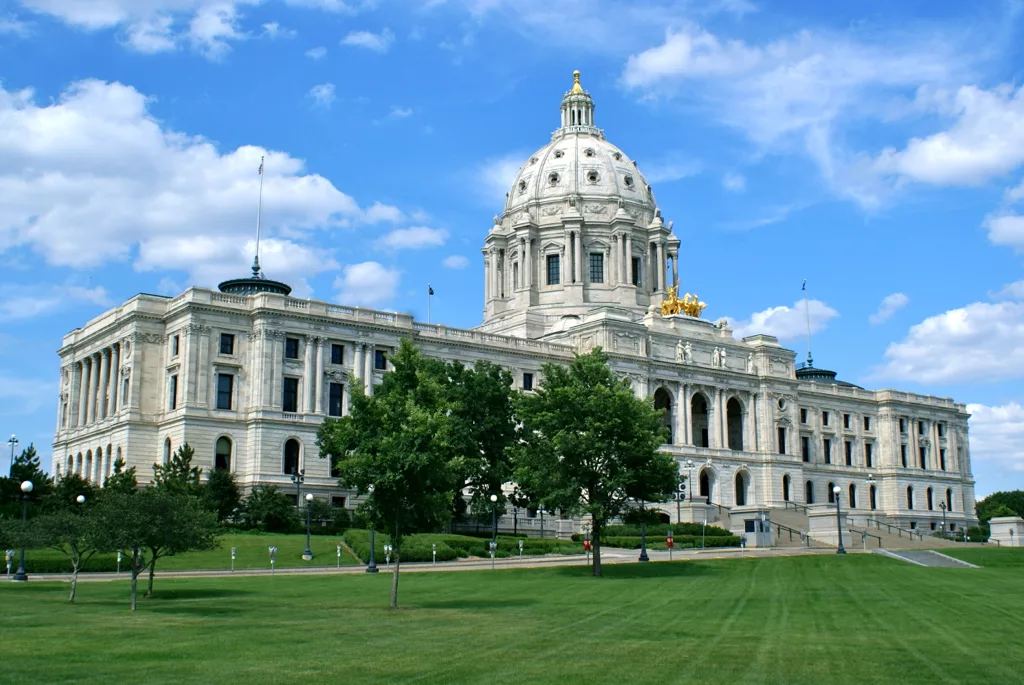
Democrats Won Power in Four States. Will They Use It to Pass Bold Justice Reforms?
In Minnesota, Democrats used a newly won legislative trifecta to legalize marijuana, overhaul the pardons process, and limit no-knock warrants. But they also funneled hundreds of millions in new funding toward prisons and policing.

Post-Traumatic Prison Disorder Could Impact Millions. Congress Wants to Learn More.
Federal lawmakers are asking the National Institute of Mental Health to research the condition—also known as post-incarceration syndrome—and share its findings with lawmakers.
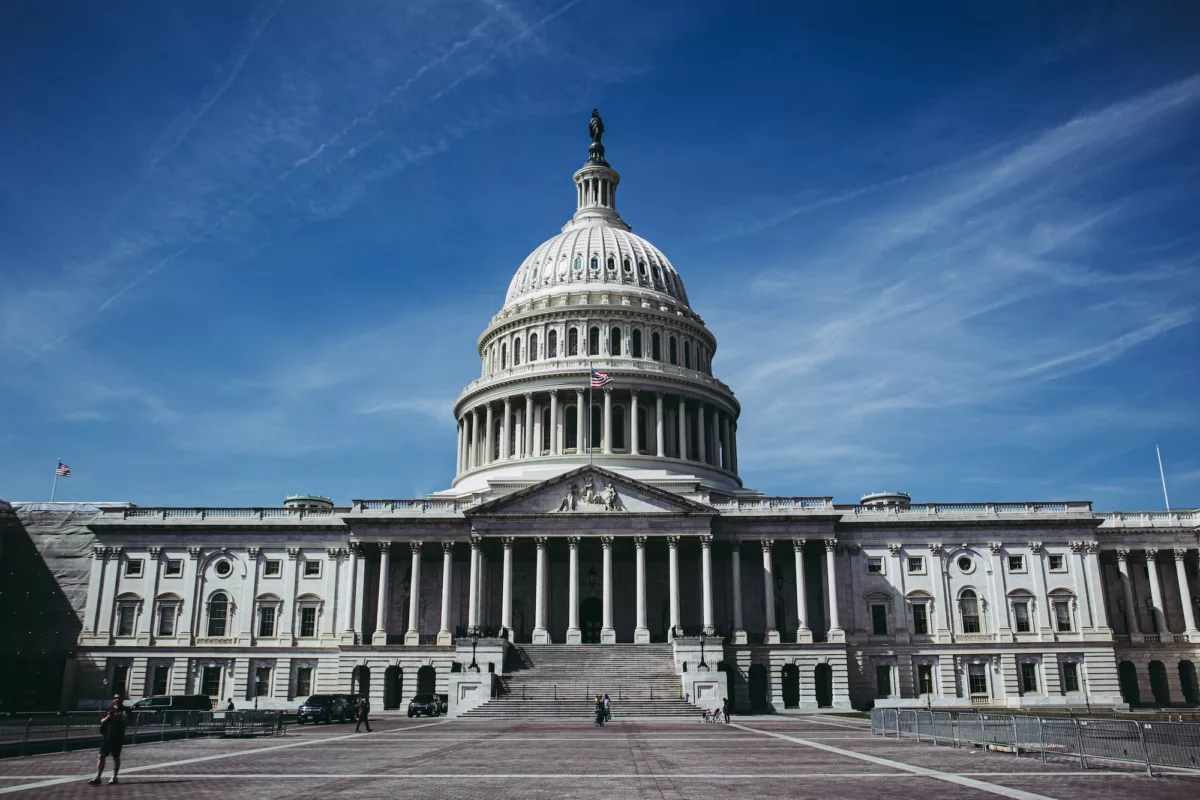
Congress Seeks to Create New Independent Federal Prison Oversight Body
Legislation introduced this week follows a string of reports, including in The Appeal, that have revealed widespread sexual abuse and misconduct at Bureau of Prisons facilities.
